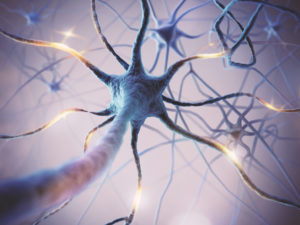What is reflex incontinence?
Reflex incontinence is the unexpected loss of urine due to a spasm of the bladder’s detrusor muscle. Reflex and urge incontinence are somewhat similar since both types of urinary incontinence involve the spasm of this muscle. However, persons with urge incontinence feel a sudden urge to urinate which gives them time to get to a restroom. In comparison, individuals with reflex incontinence generally do not feel an urge or sensation to urinate which can result in the sudden loss of large amounts of urine. This bladder spasm is sporadic and may happen even when the bladder is empty.
Causes of reflex incontinence
This type of urinary incontinence is related to neurological factors that affect messaging from the brain to the bladder. It is categorized as being spinal or supraspinal reflex incontinence.
As its name implies, spinal reflex incontinence is caused by a disruption in signals coming from the brain to the spinal cord. This disruption affects a persons control over bladder function. Generally this is the result of a spinal cord injury, surgical trauma, or disease. This form of incontinence can also be a side effect of radiation therapy.
Supraspinal is associated with neurological conditions that disrupt the neural pathways between the brain, spinal cord and bladder. These diseases can include Multiple Sclerosis, a host of different dementias, stroke, Alzheimer’s disease and Parkinson’s disease.
Treatment
As with any form of urinary incontinence, it’s important to undergo a full assessment by a qualified provider. Urologists specialize in bladder health including bladder control issues. During a consultation, the Urologist will review the patient’s medical history, current health conditions and medications. Typically they will perform a urinalysis to rule out infection. They will also talk to the patient about their voiding schedule and any wetting accidents. Based on their findings, additional testing may be prescribed before treatment.
If you are experiencing the involuntary loss of urine, contact Urology Austin to schedule a consultation with one of our providers. There are several treatment options available based on the type of urinary incontinence that the patient is experiencing.

